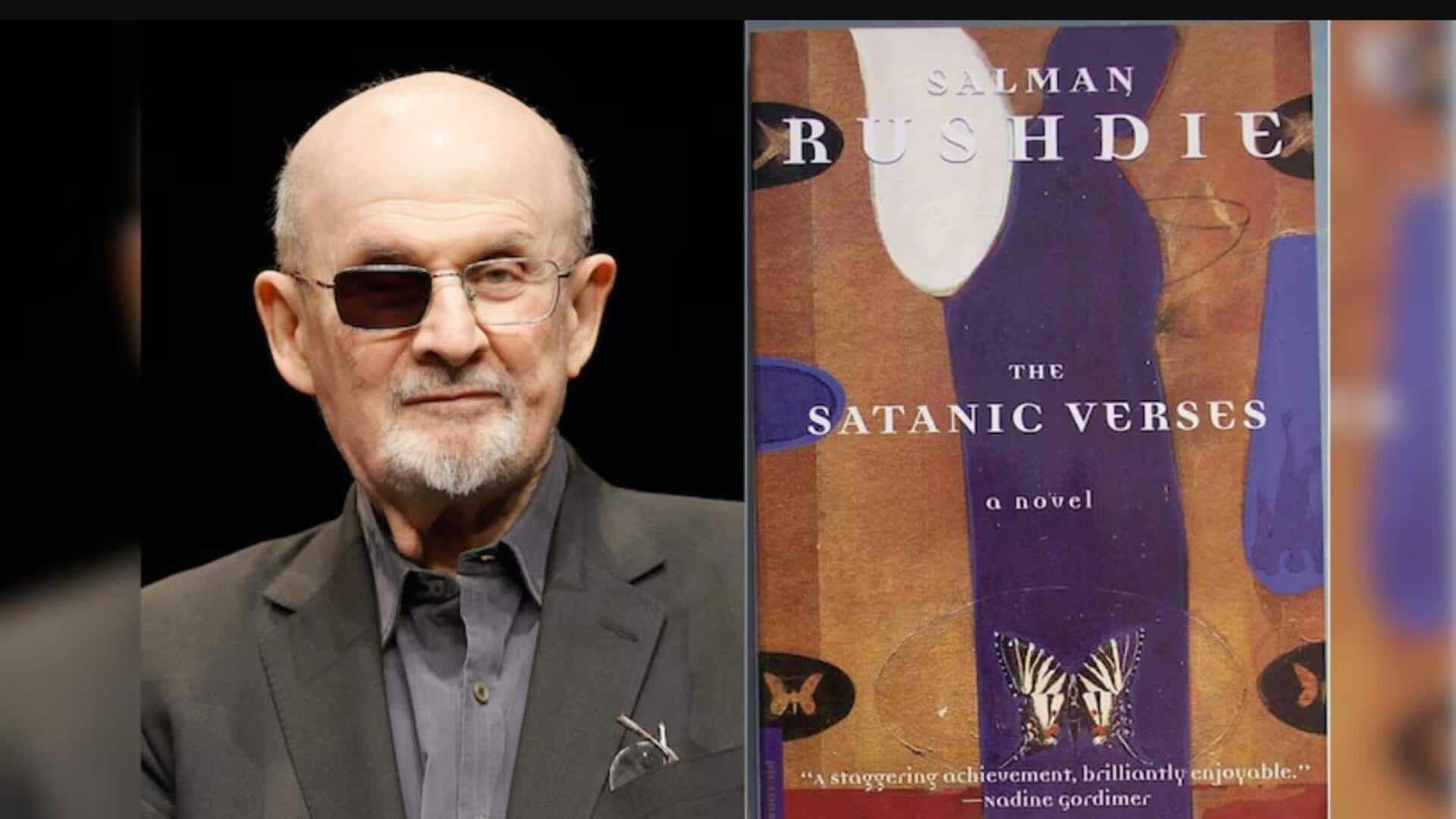
Muslim organizations condemn renewed sale of 'The Satanic Verses'
What's the story
Several Muslim organizations in India have opposed the renewed sale of Salman Rushdie's controversial book, The Satanic Verses.
The book, which was banned by the Rajiv Gandhi government in 1988, has recently resurfaced on Indian bookshelves and is available at Bahrisons Booksellers in Delhi-NCR.
The development comes after the Delhi High Court closed proceedings on a plea challenging the original ban for lack of evidence for its notification.
Community concerns
'Satanic Verses' sale sparks outrage among Muslim leaders
Maulana Kaab Rashidi of Jamiat Ulama-e-Hind (AM) condemned the sale of the book. He said, "If the freedom of expression hurts someone's sentiments, it is a legal offense."
He said selling such a controversial book in the name of freedom of expression is unacceptable.
Maulana Yasub Abbas of All India Shia Personal Law Board also criticized its availability and said it could threaten national harmony.
Ban appeal
Calls for government intervention to ban 'The Satanic Verses'
All India Muslim Jamaat's Maulana Mufti Shahabuddin Razvi emphasized that plans are afoot to re-release The Satanic Verses after the ban lapsed.
He cautioned its content could upset national peace and demanded government action.
The book has received worldwide criticism for its depiction of Islamic personalities and themes.
Political response
Political reactions to the return of 'The Satanic Verses'
The original ban on The Satanic Verses was imposed amid global protests and domestic unrest, including riots in Mumbai.
Congress leader P Chidambaram later called the decision wrong, while MP Shashi Tharoor welcomed the book's return, citing reduced risks of disturbances.
Despite differing views in the political circles, Muslim organizations continue to demand action from the central government to stop further sales of The Satanic Verses.